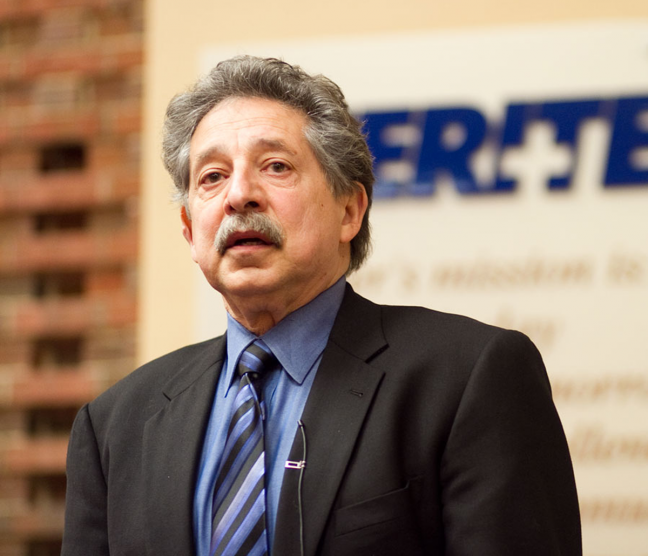The increased number of restaurants and bars on State Street has Mayor Paul Soglin concerned it could turn into a street of “megasaloons,” with the new establishments crowding out small retail shops.
The original intent of State Street was not to compete with shopping centers, but to create a space for local businesses to sell original merchandise, Soglin said at a news conference Tuesday.
“We want to keep it a street where thousands and thousands of people every week can walk and enjoy their principally locally-owned businesses, where you don’t get the feel that you’re in an outdoor mall,” Soglin said.
Nearly 30 percent of the 350 downtown businesses downtown are retail, 40 percent food and drink and the remaining are service businesses such as salons, spas and fitness centers, Mary Carbine, executive director of Madison’s Central Business Improvement District, said.
Historically, the percentage of food and drink has not changed much since 1998, Carbine said. However, Cabine also said the balance of service businesses has increased relative to retail, due to the increasing number of downtown residents looking for such services.
“Like all downtowns, State Street is dynamic and changing,” Carbine said. “The business mix responds to customers, users and uses, how people shop and what they’re looking for.”
Soglin said he thinks the construction of complexes such as The Hub and Ovation 309 will add to the demand for dry good stores on State Street and Capitol Square.
A recent city analysis by the city and the Wisconsin State Journal of the current occupants of State Street has shown a major increase in square footage of liquor sales, Soglin said.
State Street’s success over the years has driven up the property costs in the area; this makes it challenging for local businesses to pay the high rents when competing against liquor sellers, Soglin said.
In order to maintain the “flavor” of State Street and stop the shrinkage of retail, Soglin said he hopes to start a city-wide conversation about the curtailment of places that sell food, alcohol and coffee.
Instead of the addition of new restaurants and bars to State Street, Soglin said he hopes to see the retention and implementation of more local independent bookstores, art galleries and retail stores.
Soglin said he believes retail stores downtown are too few and far between.
“It’s like missing teeth in a smile,” Soglin said of the absence of retail stores around the Capitol Square.
Soglin said he wants to bring together city committees to discuss the possibility of future actions and talk with downtown area council members before finalizing a proposal. He said he hopes additions of locally-owned retailers can be made to State Street, similar to changes made on Johnson, Monroe and Willy Streets.












